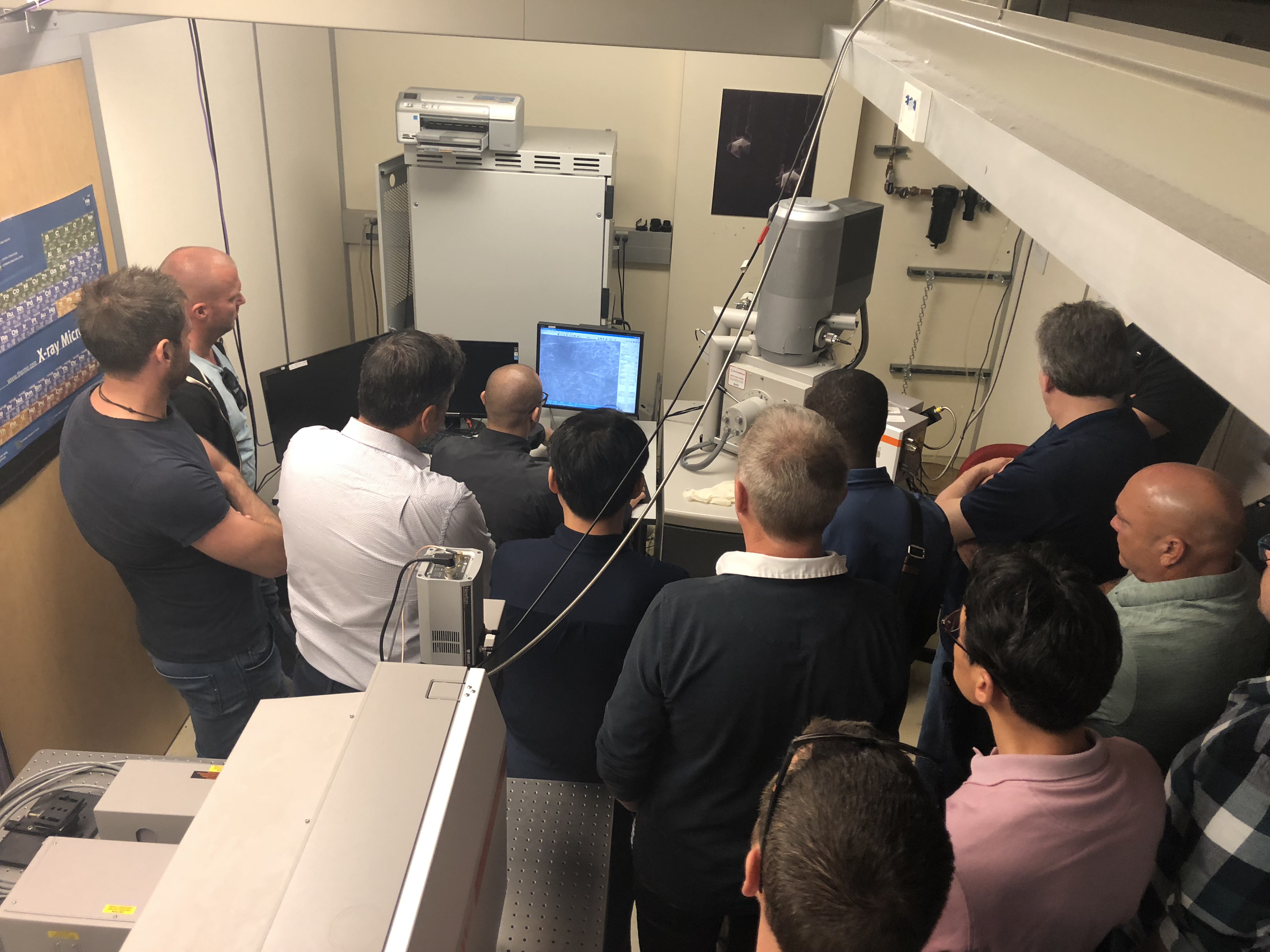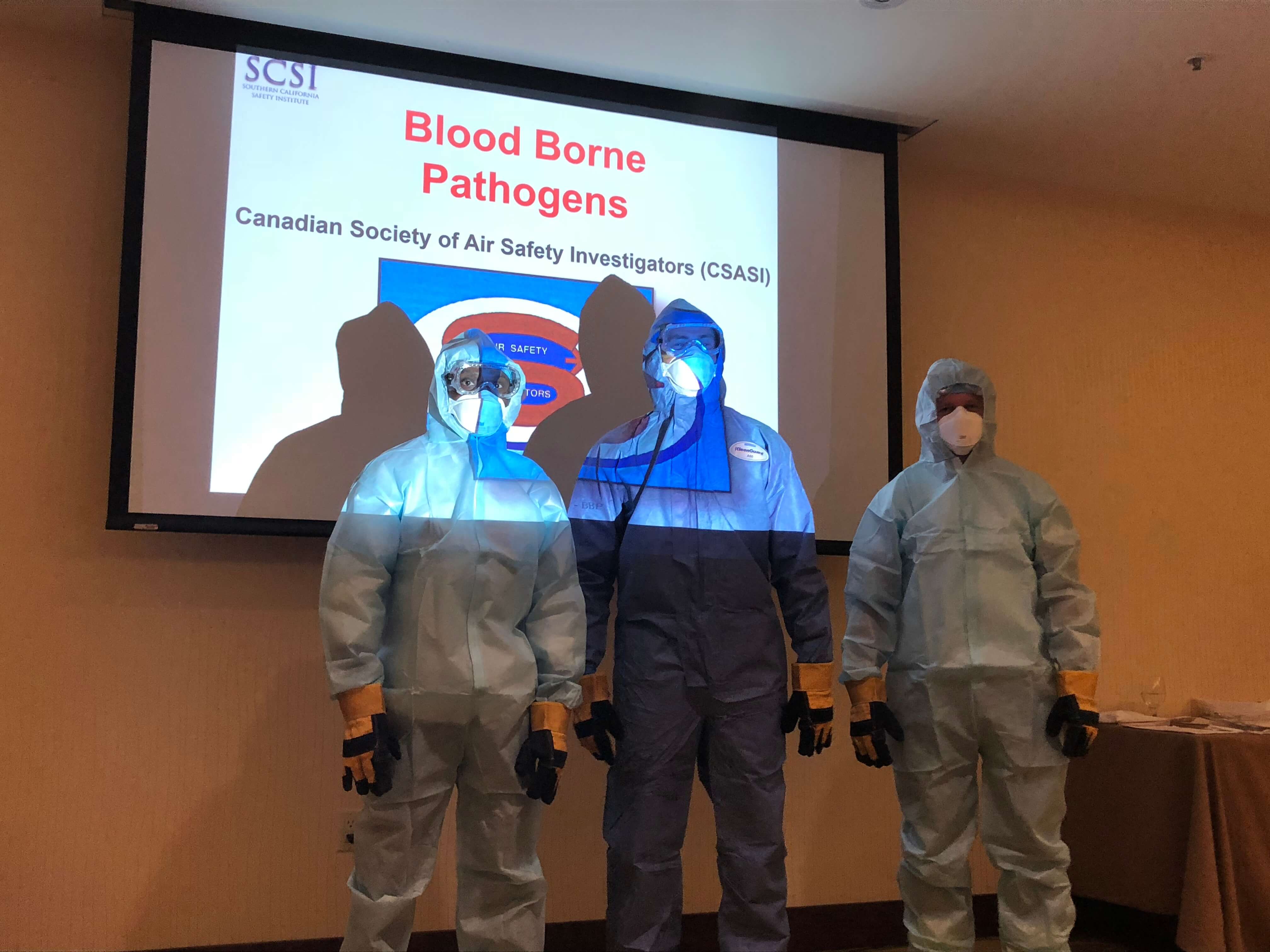Aircraft Accident Investigation (AAI)
 Course Description
Course Description

Aircraft Accident Investigation (AAI)
Duration: 9.5 days
CEUs: 7.6
Tuition- $4,200 USD
In this course you will become familiar with the methods, techniques, and requirements for investigating, and reporting aircraft accidents applicable to ICAO Annex 13 states. Once you understand the reporting requirements, you will learn how to comply with the responsibilities to preserve and interpret evidence to the investigation. You will learn how to set up an interim response team that will collect and preserve evidence. You will learn what evidence to preserve and how to preserve it. You will also learn about the hazards at an accident site and how to protect yourself and your team.
SCSI’s Aircraft Accident Investigation course provides a comprehensive and holistic approach to aircraft accident investigations in an effective, efficient, and enjoyable manner. Course material covers investigative procedures, requirements, and methodology for both civil and military aviation. The course begins with an overview of investigator expectations/characteristics then proceeds to preparation, response, analysis, and accident prevention.
Students are provided with the most current investigative techniques, delivered by instructors who are active and experienced aircraft accident investigators from civil and military aviation organizations. The instructors bring their techniques, experience and “lessons learned” from the field to the classroom.
After receiving a solid foundation of investigative theory, case studies and practical application exercises are administered to replicate real-life scenarios as realistically as possible.
Upon completion, students will receive a bloodborne pathogens training certification card (ICAO requirement), certificate of completion, thumb drive with all course material, note-taking binder, and forensic photography scale. This is a hands-on course. Attendees will learn by doing; preparing, examining evidence, determining causes, developing findings, and developing an accident report. You will also review several actual accident reports from various countries. You will learn the strengths and weaknesses of each sample report and thereby be better able to produce a quality report when you participate as part of an investigation board
.
You will learn the process of investigation from initial actions and set up to how to investigate each area of specialty, systems, structures, engines, and operations. You will be introduced to the areas of aircraft performance and structures that contribute to aircraft accidents and how they can be identified. You will also learn about specialized areas of investigation such as fire, midair collision, and in-flight explosion. You will learn how the use of recording devices and simulation have enhanced and improved the process of finding accident causes.
Human error is estimated to be a major cause in 85% of all aircraft accidents. You will learn Human Factors to help investigate possible human error. This portion of the course will examine the role of psychological and physiological effects as well as the role of the aero-medical investigator.
It has been said that a picture is worth a thousand words. Accident (forensic) photography is used to document evidence and to illustrate the investigator's conclusions. In this course you will receive instruction in the use of digital forensic photography and have hands on experience with digital photography systems. Although digital cameras will be provided, you may bring your own cameras.
- The Investigation Process
- International Investigation Procedures (ICAO)
- Investigation Preparation
- Safety at the Crash Site
- Blood-borne Pathogens
- Priorities and Initial Actions
- Reciprocating Engines
- Turbine Engines
- Oil and Fuel Analysis
- Structures/Materials
- Materials Laboratory Tour
- Fire Analysis
- Aircraft Systems
- Instruments
- Recording Devices
- Flight Data Analysis
- Military aspects and case studies
- Wreckage Recovery and Reconstruction
- Underwater Salvage
- Photography and Diagrams Midair Collisions
- Interviewing Witnesses
- Aircraft Performance Factors
- Computers and Simulation
- Human Factors and (HFACS 7.0)
- Aviation Maintenance
- Physiology
- Accident Pathology
- Analytical Techniques
- Legal Aspects
- Reporting Requirements
- Construction of Reports
- Investigation Management
WHO SHOULD ATTEND
New investigators, experienced investigators seeking an update of methodology and aviation safety professionals.
HOW YOU WILL BENEFIT
- This course covers all aspects of investigation from applicable rules and regulations through investigation technology, analysis and reports.
- The participant develops an understanding of the entire investigation process and is well prepared to participate in future investigations.
- This course is accepted by the Board of Certified Safety Professionals for Continuance of Certification Credit.
- SCSI will award 7.6 CEUs to each participant who successfully completes this course.
CRASH LAB
SCSI has assembled several exhibits from all over the world to allow our students a practical, hands-on approach to investigation training. Our crash lab exercises are administered to emulate the real investigative process. Students are expected to apply the classroom theory and table-tab exercise lessons to the practical application in the field.
COURSE ADMINISTRATION
The Aircraft Accident Investigation course consists of 9.5 training days (70) hours of classroom instruction including hands on lab work at the SCSI Crash Laboratory. Students receive a binder, note-pad and thumbdrive with course notes and additional reference material and a Certificate of Completion. Classes begin daily at 09:00 and end at 17:00 (13:00 on the final day). The on-site course coordinator is Eric Foulk. Eric will be on-site daily (Redondo Beach) during the course to assist in administrative and logistical matters. SCSI has a limited number of digital cameras to provide for the course exercises but students are stongly encouraged to bring their own cameras.
SCSI administers a pre and post-test to evaluate a student’s knowledge and as a metric for learning within the course. Students will also be required to formulate an improvement action plan to be implemented within their organization upon course completion. These plans are derived from the course content.
COMMENTS FROM ATTENDEES
- "Very good course. Excellent overview of techniques, structures, and human factors. Aero-medical investigation particularly good."
- "I was impressed with the amount of knowledge the instructors have. They bring a wealth of experience to the class."
- "This is one of the best classes I have attended. THANKS!"
- "Case study and crash lab exercise was excellent and informative. Would strongly recommend the instructors and class to anyone."